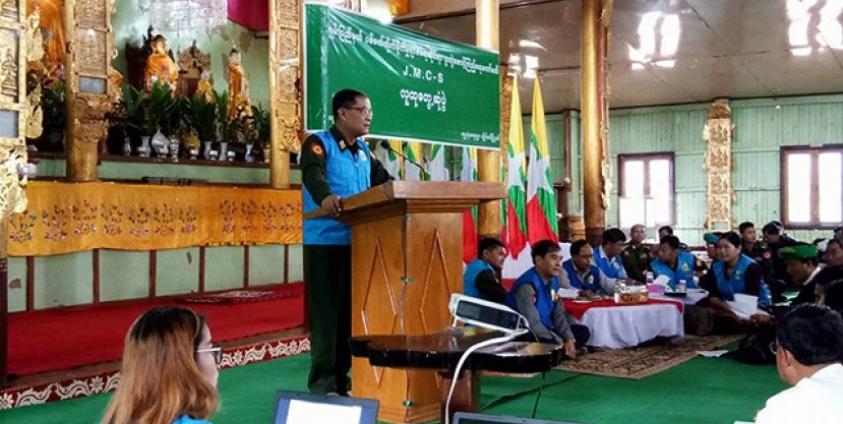Officials from Shan State met with locals in four townships last week to promote awareness about the peace process and related issues, but the last-minute meetings left out a key ethnic armed group in a way that could stir tensions.
The state-level Joint Ceasefire Monitoring Committee put together a delegation that included representatives from the Tatmadaw, the state police and the Pa-O National Liberation Organization, but did not include the Restoration Council of Shan State.
Lieutenant Colonel Sai Oo from the RCSS/SSA’s liaison office in Taunggyi said the RCSS was only invited at the very last minute.
“We were invited with short notice and were not informed in advance. We were busy with our own meetings so we couldn’t attend the [public] meeting. We were only informed via telephone. We weren’t ready so we told them that we couldn’t come. Even though we couldn’t go with them, they still wanted to hold the meeting anyway. Such kind of issue can only work out when there is cooperation. The best solution is to negotiate [with us] in advance so that we can prepare ahead,” said Lt-Col Sai Oo.
The delegation was led by Major General Than Hlaing, commander of the Tatmadaw’s Eastern Central Command and chair of the Shan State’s JMC. The group met separately with residents of Mine Kaing/Mong Kung, Lechar/Laihka and Namsan townships, and of Panglong town under Loilin/Loileng township from August 16 to 18.
“They told the public to speak without fear if human rights violations are committed by any armed group. Public participation is needed in order to implement peace. [Peace] will only be successful when everyone becomes involved. The public hasn’t seen peace for over 70 years now,” said Nan Mya Htwe, a Shan State Hluttaw MP from Loilin township.
The Shan State JMC was established in Loilin in May this year with representatives of the government, the Tatmadaw, the RCSS/SSA, the PNLO and the public.







